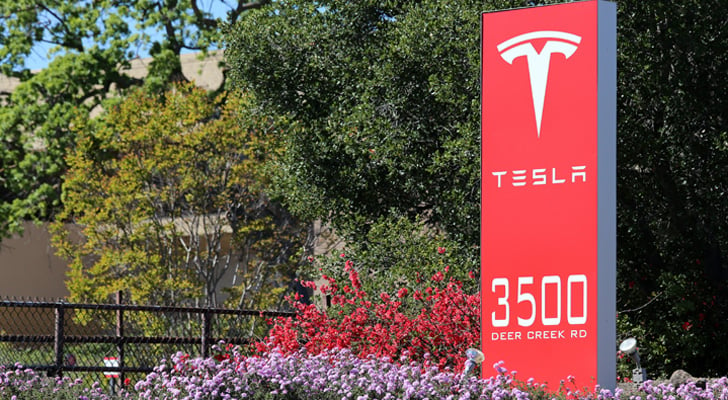It’s unfortunate — to the point of being unfair — that any incident involving an electric vehicle made by Tesla (NASDAQ:TSLA) is thrust into the media spotlight. Most of the accidents Tesla cars are involved in appear to be the result of unsafe driving, and the Tesla batteries that seem to be overly combustible are arguably being handled wrongly by emergency response teams.
On the other hand, guilt by association in the court of public opinion is far more damning than any actual legal decision. Tesla has a festering publicity problem, and though it will survive, the EV movement has taken a couple of steps backward this year.
Tesla Batteries Are a Fire Hazard
Back on May 8, a Tesla Model S was involved in a fatal accident in Fort Lauderdale, Florida. Unsafe driving speeds (as much as 116 mph just before the crash) appear to be the root cause of the crash’s two fatalities, though the battery fire immediately following the impact could have been just as fatal.
That’s not the interesting part of the story, though. No, the interesting part is that even though the fire crew sprayed it down before loading the destroyed car onto a wrecker, the battery ignited again as the vehicle was being loaded.
It ignited for a third time after it arrived at the storage yard where it was to be examined more thoroughly.
If the story seems vaguely familiar, there’s a reason. Tesla batteries were problematic in a couple of other incidents within just the past few months.
Following a fatal accident involving a Model X in March, that vehicle’s battery began to smoke later that day while in the impound lot, and then outright caught fire five days later. And, just a few days ago, a Model S caught fire even though the vehicle was not involved in any accident. Again, the battery appears to be the culprit.
All Lithium Batteries Are Dangerous
In its defense, it’s not entirely Tesla’s fault. Indeed, it’s mostly not Tesla’s fault. The only sort of battery that can provide enough wattage at a low enough weight and small enough size (and low enough price) are the lithium-based batteries currently used in Tesla vehicles. It just happens to be a volatile, vulnerable chemistry.
It’s the same kind of battery that plagued the Galaxy Note 7 smartphone, from Samsung (OTCMKTS:SSNLF), back in 2016.
It’s only a fading memory for most now, but in late 2016, the then-new
Galaxy Note 7 was recalled — globally — after the battery was determined to be at the center of several fires started within the phones. A flawed recharging architecture was a contributing factor to the danger, but the lithium battery itself was (quite literally) the catalyst.
Lithium-based batteries were also the cause of a 2013 fire onboard a 787, made by Boeing (NYSE:BA). Again, a design flaw rather than the battery itself was identified as the underlying problem. But also again, lithium proved problematic and potentially dangerous.
In other words, the Tesla batteries that seem uniquely dangerous actually aren’t all that unusual.
Still a Headwind for TSLA Stock
The facts, however, don’t entirely matter.
One of the inherent dangers of being a pioneering, cutting-edge company is that all eyes are on you at all times. Victories are touted but so are defeats. Though the country, and the world, still loves a rags-to-riches story more than any other kind, a fall-from-grace story is almost as riveting. The media is more than happy to oblige.
Consumers aren’t quick to forget, even when they don’t fully understand the nuances of a news story. Just ask Chipotle (NYSE:CMG), which is still struggling to shrug off the adverse impact of an E. coli debacle that was quelled more than two years ago.
That’s not to say Tesla can’t get past it. Indeed, Tesla will likely continue to grow sales despite the alarming headlines because there’s still more demand for its cars than it’s able to produce.
For all the would-be buyers that were on the fence, though, it would be naive to think they’re not at least a little less willing to make that purchase until it’s crystal clear Tesla batteries aren’t an oversized fire risk. And it could take a couple of fire-free years to reach that point.
As of this writing, James Brumley did not hold a position in any of the aforementioned securities. You can follow him on Twitter, at @jbrumley.

